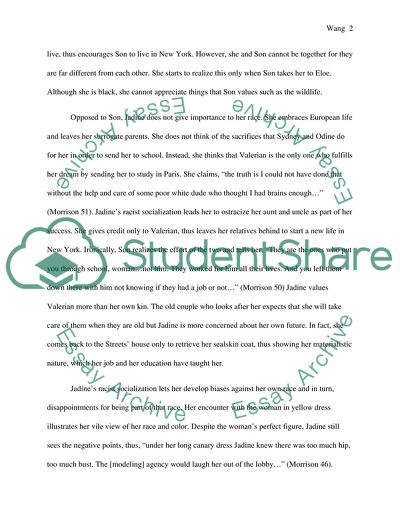Cite this document
(Unhappy Endings Caused by PTSS in Toni Morrisons Tar Baby Book Report/Review, n.d.)
Unhappy Endings Caused by PTSS in Toni Morrisons Tar Baby Book Report/Review. Retrieved from https://studentshare.org/social-science/1877024-essay-on-tar-baby-ly
Unhappy Endings Caused by PTSS in Toni Morrisons Tar Baby Book Report/Review. Retrieved from https://studentshare.org/social-science/1877024-essay-on-tar-baby-ly
(Unhappy Endings Caused by PTSS in Toni Morrisons Tar Baby Book Report/Review)
Unhappy Endings Caused by PTSS in Toni Morrisons Tar Baby Book Report/Review. https://studentshare.org/social-science/1877024-essay-on-tar-baby-ly.
Unhappy Endings Caused by PTSS in Toni Morrisons Tar Baby Book Report/Review. https://studentshare.org/social-science/1877024-essay-on-tar-baby-ly.
“Unhappy Endings Caused by PTSS in Toni Morrisons Tar Baby Book Report/Review”. https://studentshare.org/social-science/1877024-essay-on-tar-baby-ly.


